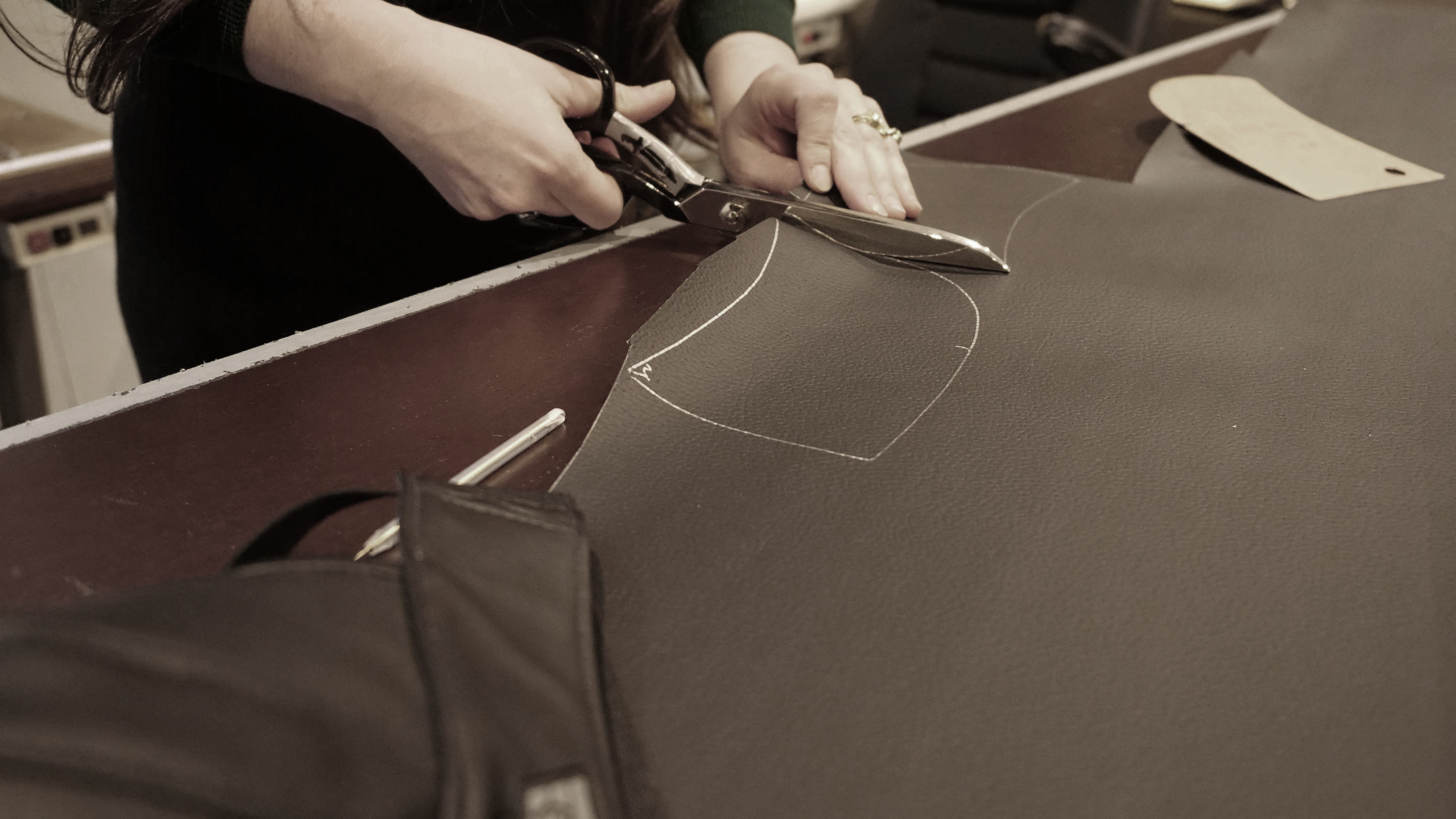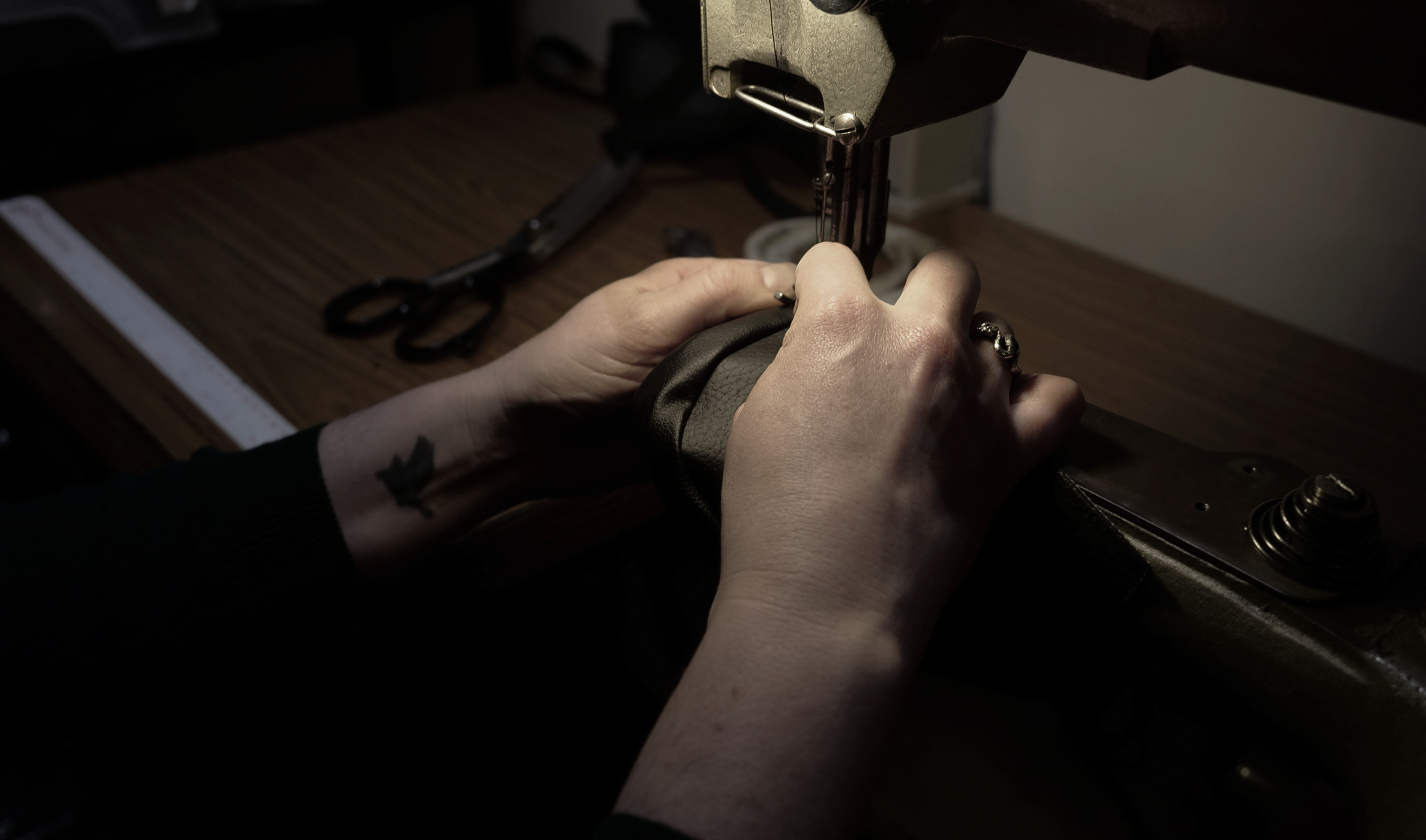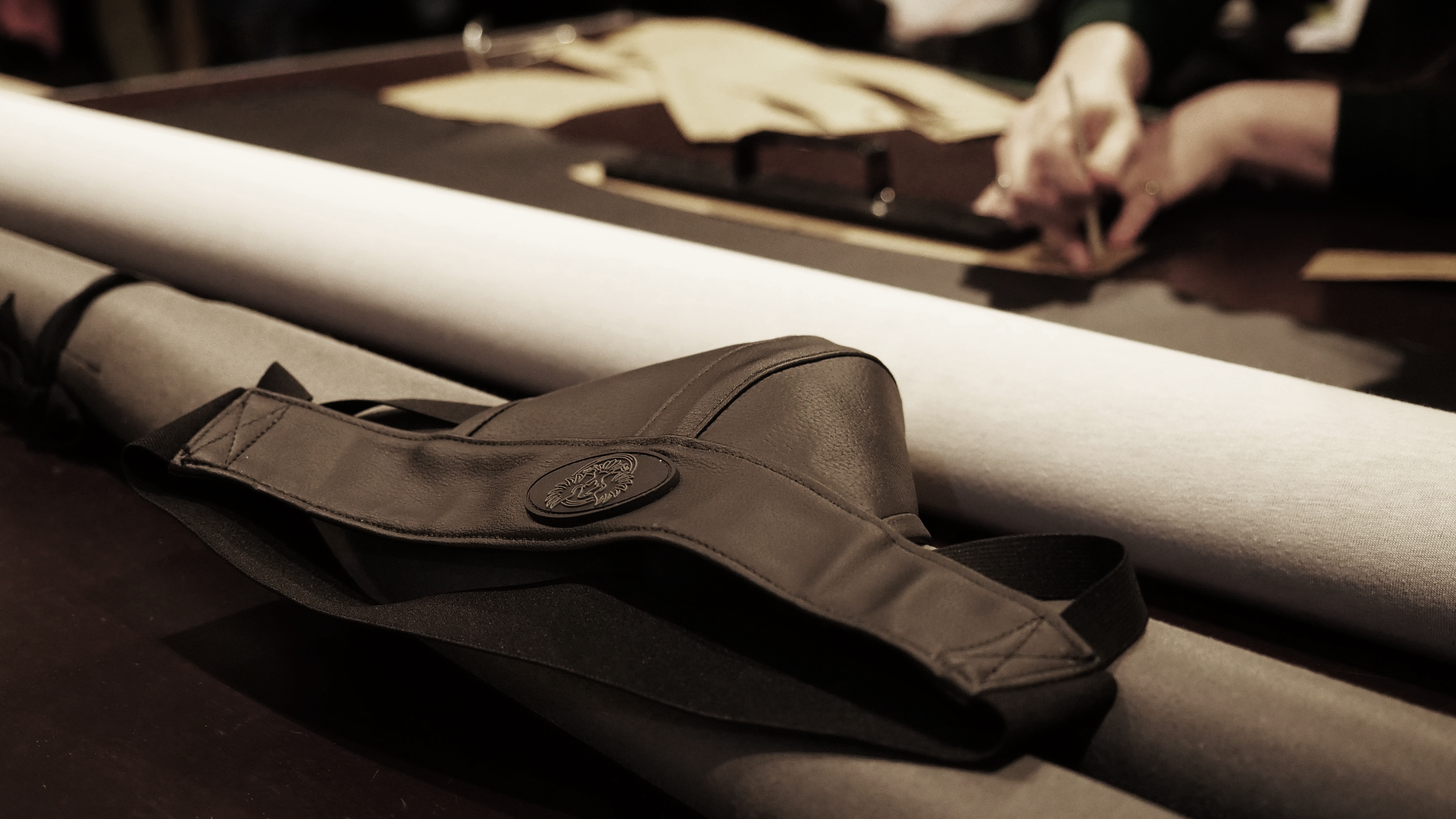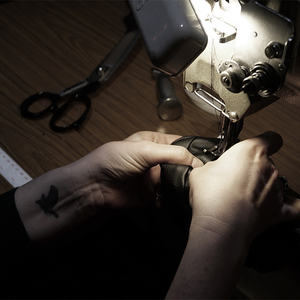Now, you may say that there are already ‘Vegan alternatives out there for leather’ including PVC (polyvinyl chloride) or PU (Polyurethane), but they commonly contain toxic chemicals that are mostly made from fossil fuels, which means lots of CO2 is emitted during production. According to the Association of Plastics Manufacturers in Europe, producing a pound of PU foam emits 3.7 pounds of CO2.
 The fashion industry is the second largest contributor to pollution in the world, and with leather being a staple in the industry, designers are starting to look towards a more sustainable future.
The fashion industry is the second largest contributor to pollution in the world, and with leather being a staple in the industry, designers are starting to look towards a more sustainable future.
Recently we have seen designers and material manufacturers introducing new plant based materials made from substances like Cactus Pulp, Apple Pulp, Mushrooms and Grapes across the world. These products look the same as leather but are a more sustainable option.
Eagle Leather has been manufacturing leather clothing for 27 years and more recently the team have been experimenting with plant based alternatives. Several years in the making, Eagle Vegan is a new and exciting range created with apple and cactus based products. Having seen other fetish retailers around the world producing PU leather garments, the Eagle team wanted to take it one step further and create a vegan alternative that was not only free from animal products, but actually sustainable too. I took the opportunity to sit and talk hides and plant based materials with Eagle Leather’s resident Leather-maker Hanna..

What are the differences between genuine leather and plant based leather as far as feel/smell/quality/durability?
“We have to keep in mind that plant-based leather isn’t going to have the same feel as animal leather. You have to separate it in your mind because it’s very hard to compare the two, it’s clearly not the same product. It’s still a new product, and there is a lot of experimentation happening with it at the moment.
Two to three years ago it was almost impossible to find vegan leather products that weren’t PVC or vinyl based or had some sort of plasticky coating, so that’s a big development.
Vegan Leather emulates some of the characteristics of leather, and has some of the looks of leather as well; but in terms of the feel of and smell of leather, for a very long time that’s going to be something that is unique to animal products.
A lot of the animal leather I use is really flexible and soft and has a really lovely feel in the hand. Because I use leather from high quality tanners the smell of the hide is really nice and is something that appeals to a lot of our leather fans. It’s something you just can’t really recreate.
In terms of durability, leather is something that lasts incredibly long if treated properly. Archeologists are still finding leather in digs from hundreds or even thousands of years ago. If you treat leather products with care and do all the right things with them, you’ll get a decade or more out of them. Plant based vegan products are really really stringently stress tested and put through all of these industry standard tests in terms of abrasion, stretching, heat resistance; but they are still never going to have the same longevity as real leather.
We do have to keep in mind that these plant-based leather materials are still very new, so it will be interesting to see how the material stands up to the different types of wear that we get in the leather and fetish communities, but that’s all part of the learning experience of working with this exciting new material.”
You choose certain hides on ethical grounds. What are they, and do you think a plant based alternative will impact leathermakers’ decisions?
“I always try to make the best decisions I can with every material I use. I won't use plastic-based vegan options because I don’t see that as a good thing to produce. Most of the animal leather we source comes from Italy, Japan or South Korea. All of those producers make really high quality materials, have really high standards of welfare for their workers and they have high standards when it comes to the ecological impact of the runoff from the tanners. All of the animal products we use are animal by-products so the hides are from cows and sheep that are bred for food. None of these animals are bred solely for material, so nothing of the animal goes to waste.”
What different care practices should consumers be aware of between genuine leather and plant based leather?
 “The care for vegan leather is going to be really really similar to animal leather, however the main challenge I’m working on at the moment is finding a cleaning and conditioning product that doesn’t have animal products in it. We always want to sell our products with cleaning and care options because of how much wear they get. Especially with sweat, it's really important to clean and maintain your garments to get the most out of them. It should be straightforward and the same, but it's just a matter of finding the right products that are vegan-friendly as well.“
“The care for vegan leather is going to be really really similar to animal leather, however the main challenge I’m working on at the moment is finding a cleaning and conditioning product that doesn’t have animal products in it. We always want to sell our products with cleaning and care options because of how much wear they get. Especially with sweat, it's really important to clean and maintain your garments to get the most out of them. It should be straightforward and the same, but it's just a matter of finding the right products that are vegan-friendly as well.“
Where do you see Plant Based Vegan Leather in 5-10 years time? Is it a way forward in the fashion world as far as sustainability and conscious fashion choices?
“Definitely! In terms of the level of the product at the moment, it's not in any position to replace leather just because the quality of the products won’t match leather, but I think it's open to development in the future and I’m interested to see where it goes. There will always be a place for animal leather in terms of the specific connection people feel with that material, but I wouldn’t rule out a more sustainable practice.
One big thing to remember is that we are making these garments here in Australia. Leather making is a skill set and an industry that has a strong history in Australia and has been gradually disappearing so it's important that we try and keep it going.”
So I suppose the question comes down to you…
Why do you choose your leather? Are you ready to embrace a plant based leather future?
Let me know.
Blog image photography by Peter Tarasiuk and Carlos Mantilla (all other images).
__________________________

